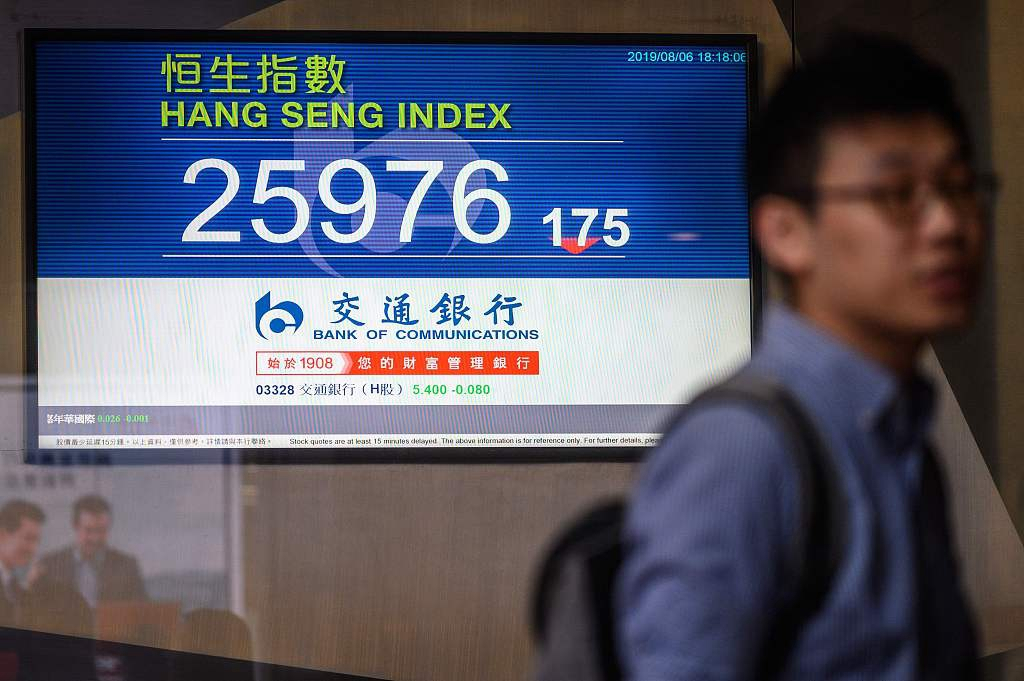Macao Special Administrative Region has passed on plans to central authorities in Beijing regarding the establishment of a new Nasdaq-style stock exchange, in a move that would enhance development of the Guangdong-Hong Kong-Macao Greater Bay Area and diversify the SAR's economy away from its gaming industry.
He Xiaojun, director of the Local Financial Supervision and Administration Bureau of Guangdong Province, told the Lingnan Forum in Guangzhou on Saturday that his office had "helped the Macao government make a plan to set up a stock exchange, with the aspiration to make it an offshore renminbi Nasdaq-style bourse," according to People's Daily.
The blueprints for the stock exchange had been sent to the central government in Beijing, with He adding that he hoped a new exchange could be announced as part of celebrations of the 20th anniversary of the establishment of Macao SAR in December.

Macao authorities are looking to diversify the SAR's economy and move away from a reliance on the gaming sector. /VCG Photo
Macao authorities are looking to diversify the SAR's economy and move away from a reliance on the gaming sector. /VCG Photo
According to the Monetary Authority of Macao (MAM), a feasibility study into the proposed stock exchange is underway, and would be based on "giving full play to the strengths of Macao SAR and serving the needs of the country," while taking into consideration the Greater Bay Area.
A Macao stock exchange would join Hong Kong, Shanghai and Shenzhen as a fourth trading center in China. The Macao SAR has been developing its financial sector, and He Xiaojun said at the Lingnan Forum that a trading house in Macao could better serve the needs of Guangdong Province and the wider Greater Bay Area.
He said that there are 45,000 high-tech companies registered in Guangdong but only 600 of them are publicly listed, with Shenzhen and Hong Kong not able to fully accommodate the needs of such firms in the region.
Macao is one of the wealthiest regions on the planet, with GDP per capita of 86,400 U.S. dollars according to the International Monetary Fund. However, Macao authorities are aware that its economy is overly reliant on gaming and casinos, and a new stock exchange and burgeoning financial sector could help to diversify the SAR's economic model.
According to Xinhua, Macao SAR's gaming revenue was down by 8.6 percent year-on-year in August, with the sector seeing revenue of around three billion U.S. dollars in that month. In 2018, the SAR's gaming sector saw revenue of 37.6 billion U.S. dollars, according to the Gaming Inspection and Coordination Bureau.
However, many analysts believe that Macao would struggle to set up an exchange on the same scale as Hong Kong, Shanghai or Shenzhen. The Macao SAR has a population of around 670,000, with a narrower available talent pool than other cities.

A Macao exchange should aim to compliment rather than compete with Hong Kong, according to several analysts. /VCG Photo
A Macao exchange should aim to compliment rather than compete with Hong Kong, according to several analysts. /VCG Photo
There are only 30 banks registered in Macao according to MAM, compared with Hong Kong's 164 financial institutions which include major international banks like HSBC, Morgan Stanley and Goldman Sachs.
Hong Kong's stock exchange dates back to 1891, and despite recent unrest in the region, its well-established financial system makes it a destination of choice for firms looking to go public, as well as international investors.
Talking to Global Times, Liang Haiming of the Belt and Road Institute at Hainan University said that a Macao exchange could succeed if it was set up to compliment China's other exchanges rather than rival them.
"A securities exchange in Macao would facilitate creating a market for the internationalization of the yuan" said Liang, adding that the Macao SAR could look at shortcomings in other markets and create innovative, complimentary financial services.
Macao's history as a Portuguese-speaking region could also promote yuan internationalization in other markets like Brazil.
Yu Lingqu, deputy director of the Department of Finance and Modern Industries at the China Development Institute, told China Daily that the SAR's European-style legal system could be a more attractive alternative for international firms from Europe and South America, with Hong Kong's system mirroring the U.S. and UK models.